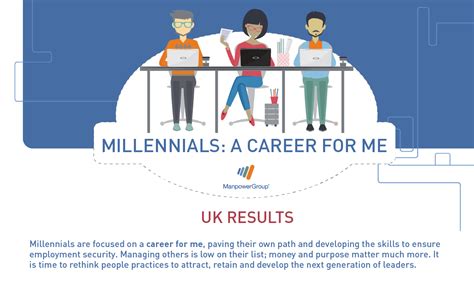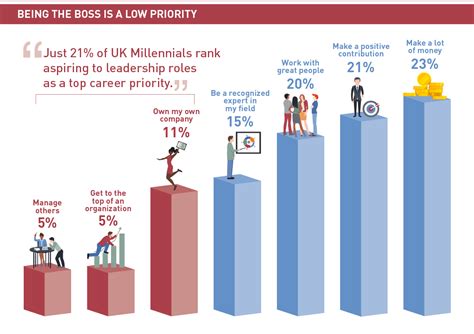
Finding a good boss early in one’s career is crucial for learning, but after 50, individuals should focus on leading themselves, according to Alibaba co-founder Jack Ma. He emphasized the importance of learning and making mistakes when young, guided by a supportive leader, while highlighting the shift towards self-reliance and contributing to society in later years during a speech at the Africa eFounders Fellowship Program.
Jack Ma, the co-founder of Alibaba, has dispensed advice emphasizing the evolving nature of career priorities throughout different life stages. Speaking at the Africa eFounders Fellowship Program, Ma underscored the significance of identifying a commendable leader early in one’s professional journey. However, he posited that beyond the age of 50, the onus shifts towards self-leadership and contributing positively to society. This perspective provides a nuanced framework for career development, advocating for mentorship in youth and self-direction in maturity.
The Importance of a Good Boss in Early Career
Ma’s advice centers on the pivotal role a good boss plays in shaping a young professional. In the initial phases of a career, the primary objective should be learning and absorbing knowledge, even if it involves making mistakes. A supportive boss can provide the necessary guidance and create an environment conducive to growth. “Before 20 years old, be a good student,” Ma articulated, “When you do [things], make enough mistakes. Don’t worry.”
He further elaborates that between the ages of 25 and 30, finding a good boss is paramount. This mentor should be someone the individual admires and from whom they can learn valuable skills and insights. The focus at this stage is not solely on the company but, more importantly, on the leader. Ma explicitly advises, “Between 25 and 30 years old, find a good boss. The boss is more important than the company. Learn from the boss.” This emphasis on mentorship underscores the belief that early career experiences are formative and can significantly impact future success.
Self-Leadership and Societal Contribution After 50
The latter part of Ma’s advice focuses on individuals over 50. He suggests that beyond this age, individuals should no longer focus on merely working for others but rather on leveraging their accumulated experience to benefit society. “After 50 years old, work for the young people,” Ma stated, suggesting a shift in focus towards nurturing the next generation and contributing to the broader community. He also touched on the importance of self-reliance, especially as one gains more experience. The message here is one of empowerment and responsibility. As individuals mature in their careers, they should transition from being led to leading themselves and others.
Ma’s philosophy resonates with the idea of legacy and making a lasting impact. Instead of continuing to climb the corporate ladder or chasing personal gains, individuals over 50 should use their knowledge, skills, and resources to empower the younger generation and tackle societal challenges. This perspective aligns with the principles of servant leadership, where leaders prioritize the needs of their team and contribute to the growth and well-being of others.
Contextualizing Ma’s Advice: The Africa eFounders Fellowship Program
Ma’s statements were made during the Africa eFounders Fellowship Program, an initiative aimed at nurturing young African entrepreneurs. This context is crucial for understanding the intent behind his advice. The program focuses on empowering young individuals to develop their entrepreneurial skills and create innovative solutions to address the challenges facing the African continent.
By advising young people to seek out good bosses early in their careers, Ma is essentially encouraging them to find mentors who can guide them on their entrepreneurial journey. He believes that learning from experienced leaders is essential for developing the skills and knowledge necessary to succeed in the business world. Moreover, his emphasis on self-leadership and societal contribution for those over 50 encourages seasoned professionals to invest in the next generation of African entrepreneurs and contribute to the continent’s economic development.
The Broader Implications of Ma’s Career Philosophy
Jack Ma’s advice extends beyond the specific context of the Africa eFounders Fellowship Program. It offers a valuable framework for career development applicable to individuals in various industries and countries. The emphasis on mentorship, self-leadership, and societal contribution resonates with the principles of personal growth, professional development, and social responsibility.
The importance of mentorship cannot be overstated. Research consistently shows that individuals who have mentors are more likely to succeed in their careers. Mentors provide guidance, support, and encouragement, helping mentees navigate challenges and achieve their goals. By advising young people to seek out good bosses, Ma is essentially advocating for the benefits of mentorship.
Self-leadership is equally important. As individuals progress in their careers, they must develop the ability to lead themselves effectively. This involves setting goals, managing time, making decisions, and taking responsibility for their actions. Self-leadership is essential for achieving success and fulfillment in both personal and professional life.
Finally, the emphasis on societal contribution highlights the importance of using one’s skills and resources to make a positive impact on the world. This can involve volunteering, donating to charity, or using one’s professional expertise to address social or environmental challenges. Contributing to society not only benefits others but also provides a sense of purpose and fulfillment.
Critiques and Considerations
While Ma’s advice offers a valuable framework for career development, it’s important to consider potential critiques and limitations.
Firstly, the idea of a strict age-based transition might be overly simplistic. Not everyone fits neatly into these categories. Some individuals may find themselves in leadership roles earlier than 50, while others may continue to benefit from mentorship beyond that age. The key is to adapt Ma’s advice to one’s individual circumstances and career trajectory.
Secondly, the concept of “working for young people” after 50 can be interpreted in various ways. It could mean mentoring, investing in startups, or simply creating opportunities for the next generation. However, it’s crucial to ensure that this support is provided in a way that empowers young people rather than stifling their creativity and innovation.
Thirdly, it’s important to acknowledge that not everyone has the privilege of choosing their career path or boss. Socioeconomic factors, geographical constraints, and other limitations can significantly impact an individual’s ability to follow Ma’s advice. Therefore, it’s essential to consider the broader context and recognize that career development is not always a linear or straightforward process.
Finally, some critics might argue that Ma’s advice reflects a specific cultural perspective, particularly the emphasis on deference to authority in Asian societies. While mentorship is undoubtedly valuable, it’s important to strike a balance between learning from experienced leaders and developing one’s own independent thinking and decision-making skills.
Expanding on Key Concepts
To fully grasp the depth of Ma’s philosophy, it’s helpful to delve deeper into the key concepts of mentorship, self-leadership, and societal contribution.
-
Mentorship: Mentorship is a relationship in which a more experienced or knowledgeable person helps to guide a less experienced or knowledgeable person. Mentors can provide advice, support, and encouragement, helping mentees develop their skills, build their confidence, and navigate challenges. Effective mentorship requires trust, mutual respect, and a willingness to learn from each other.
Benefits of Mentorship:
- Accelerated learning and development
- Increased confidence and self-esteem
- Improved networking and career opportunities
- Enhanced problem-solving skills
- Greater job satisfaction and retention
Finding a Mentor:
- Identify your goals and areas where you need guidance.
- Seek out individuals who have the skills, experience, and qualities you admire.
- Attend industry events and networking opportunities.
- Reach out to potential mentors and express your interest in learning from them.
- Be proactive in maintaining the relationship and seeking feedback.
-
Self-Leadership: Self-leadership is the ability to influence and control one’s own thoughts, feelings, and behaviors. It involves setting goals, managing time, making decisions, and taking responsibility for one’s actions. Self-leadership is essential for achieving success and fulfillment in both personal and professional life.
Key Components of Self-Leadership:
- Self-awareness: Understanding your strengths, weaknesses, values, and motivations.
- Self-regulation: Managing your emotions, impulses, and behaviors.
- Motivation: Staying focused and committed to your goals.
- Time management: Prioritizing tasks and using your time effectively.
- Decision-making: Making informed and rational choices.
Developing Self-Leadership Skills:
- Set clear and achievable goals.
- Practice self-reflection and identify areas for improvement.
- Develop effective time management strategies.
- Learn to manage stress and maintain a healthy work-life balance.
- Seek feedback from others and be open to constructive criticism.
-
Societal Contribution: Societal contribution refers to the act of using one’s skills, resources, and influence to make a positive impact on the world. This can involve volunteering, donating to charity, advocating for social justice, or using one’s professional expertise to address social or environmental challenges. Contributing to society not only benefits others but also provides a sense of purpose and fulfillment.
Ways to Contribute to Society:
- Volunteer your time and skills to a cause you care about.
- Donate to charities and organizations that are making a difference.
- Advocate for policies that promote social justice and environmental sustainability.
- Use your professional expertise to address social or environmental challenges.
- Mentor young people and help them develop their potential.
Benefits of Societal Contribution:
- Increased sense of purpose and fulfillment
- Improved mental and physical health
- Stronger social connections
- Greater sense of community
- Positive impact on the world
Conclusion
Jack Ma’s advice on career development offers a valuable framework for individuals at different stages of their professional lives. The emphasis on mentorship, self-leadership, and societal contribution resonates with the principles of personal growth, professional development, and social responsibility. While it’s important to consider potential critiques and limitations, Ma’s philosophy provides a compelling vision for a fulfilling and impactful career. By seeking out good bosses early in their careers, developing self-leadership skills, and contributing to society, individuals can achieve success and make a positive difference in the world. His insights, delivered at the Africa eFounders Fellowship Program, serve as a call to action for individuals to embrace lifelong learning, empower the next generation, and contribute to the betterment of society. Ma’s blend of practical advice and aspirational goals provides a roadmap for navigating the complexities of career development in an ever-changing world.
Frequently Asked Questions (FAQ)
Q1: What is the main point of Jack Ma’s advice?
A1: Jack Ma advises that young people should prioritize finding a good boss to learn from and make mistakes under guidance. After the age of 50, individuals should focus on leading themselves and contributing to the development of younger generations and society as a whole.
Q2: Why does Jack Ma emphasize the importance of a good boss in early career stages?
A2: He believes that a good boss provides essential mentorship, guidance, and a supportive environment for young professionals to learn, grow, and even make mistakes without significant repercussions. This early-career learning phase is crucial for building a strong foundation.
Q3: What does Jack Ma mean by “work for the young people” after the age of 50?
A3: He suggests that individuals should use their accumulated experience, knowledge, and resources to support and empower the younger generation. This could involve mentoring, investing in their ventures, or creating opportunities for them to succeed, thereby contributing to societal progress.
Q4: Is Jack Ma’s advice applicable to everyone, regardless of their background or industry?
A4: While the principles are generally applicable, it’s essential to adapt the advice to individual circumstances. Socioeconomic factors, career trajectories, and personal preferences can influence how one applies these concepts. The age-based transition might not be a rigid rule but rather a guideline.
Q5: Where did Jack Ma share this advice?
A5: Jack Ma shared this advice during a speech at the Africa eFounders Fellowship Program, an initiative focused on empowering young African entrepreneurs. The context of the program is important for understanding the emphasis on mentorship and societal contribution within the African entrepreneurial landscape.









